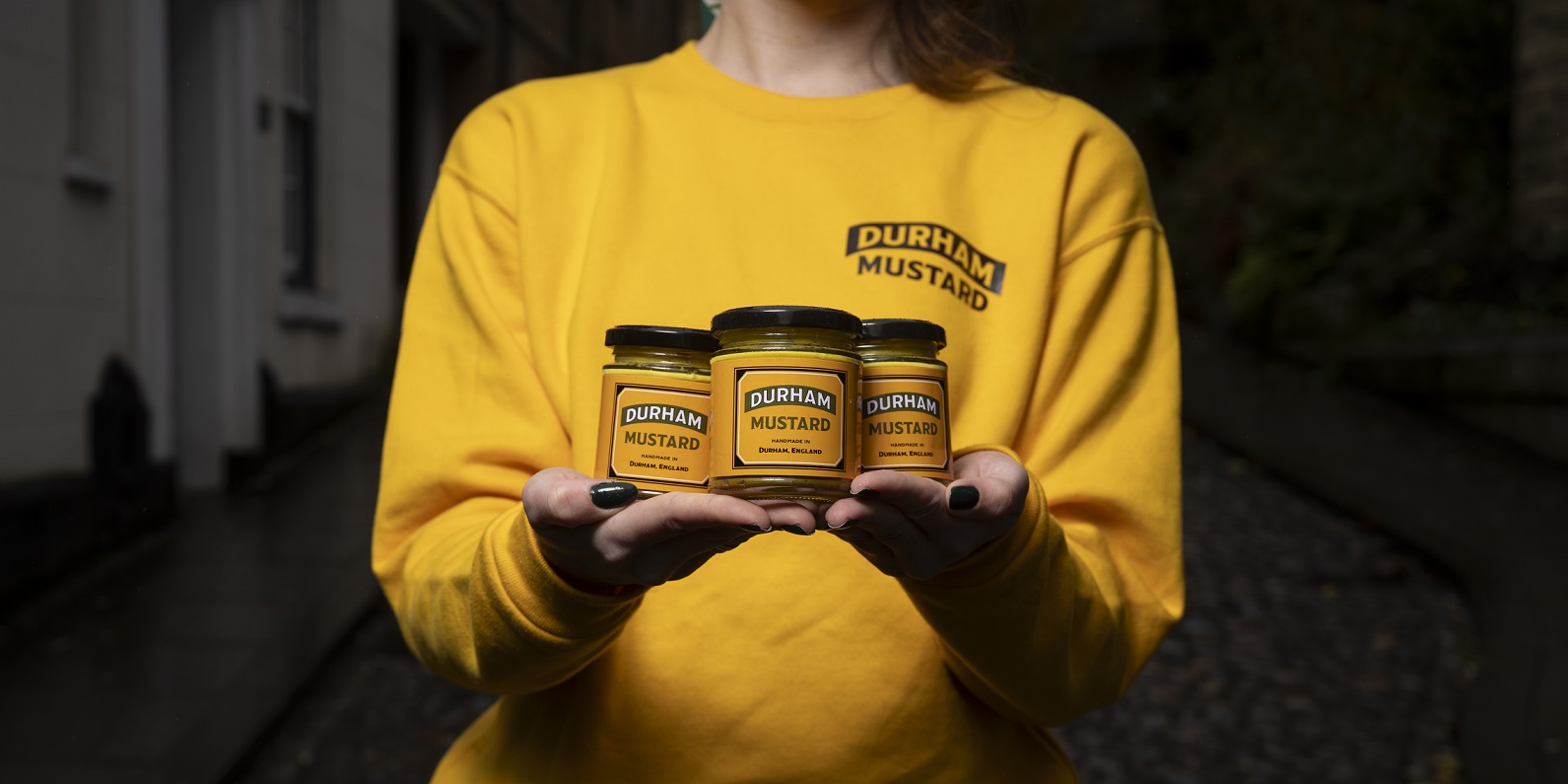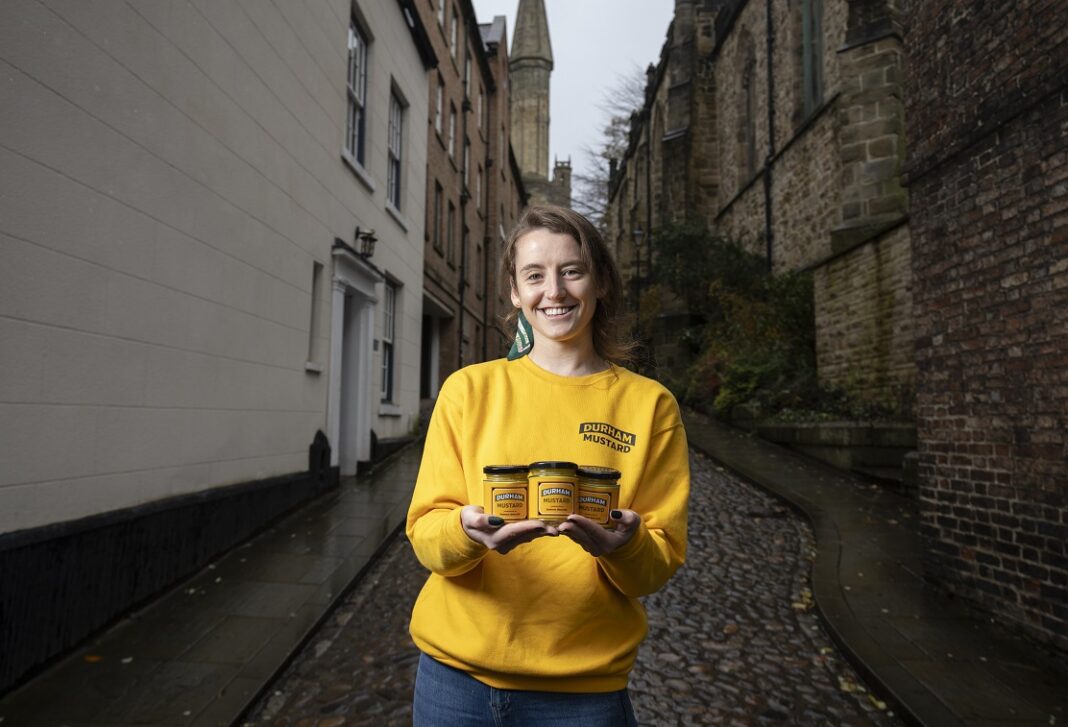Resurrecting mustard production in Durham was the brainchild of Visit County Durham, as part of its work to develop the county as a culinary destination through the Taste Durham initiative. Visit County Durham joined forces with local business owner Anya Kirkby to develop and deliver the wholesale venture, which aims to establish Durham Mustard as a popular condiment across the North East and beyond.
English mustard was born due to the vision of Durham woman Mrs Clements, who has been referred to as the “mother of mustard”.

In 1720, in Saddler’s Yard in Durham City, she first discovered that mustard seeds when ground produced a stronger flavour. Mrs Clements travelled the country with her secretly guarded recipe, and it caught the attention of King George I, who patented the product.
The condiment’s popularity grew, with orders coming in nationwide. Mustard seeds were grown on Durham farms, with some crops with up to £100 an acre. Other industries also thrived, including the pottery trade in Gateshead which supplied pots for mustard export.
Mrs Clements’ company changed its name to Ainsley’s, after her son-in-law, and was eventually acquired by Colman’s of Norwich. As a nod to Mrs Clements, Coleman’s chose the head of a Durham ox for their trademark, which still features on jars today.
Anya said: “Mrs Clements’ story is an important piece of our region’s food history, but not many people are aware that the English mustard we know and love today was invented in Durham. I’m keen to keep the legacy going and, after months of researching and working on the perfect recipe, I am thrilled to launch this wholesale venture with support from Visit County Durham.”
Anya, who also runs a successful Durham-based sweet business, is looking for potential stockists and collaborators, including farm shops, accommodation providers, food manufacturers and restaurants that would like to serve mustard as part of their offering.
The team is also exploring the possibility of growing mustard seed in the county to ensure all aspects of the product support local businesses.
Michelle Gorman, managing director of Visit County Durham, said: “Durham has a fantastic culinary offer, with amazing eateries, talented producers and popular food festivals that draw in tens of thousands of people each year.
“Resurrecting Durham Mustard will further enhance our reputation as a foodie destination, while also creating opportunities for tourism and hospitality businesses to celebrate Mrs Clements’ story in their own activities. Anya is the perfect person to bring this vision to life. Her experience, passion and knowledge of food history is truly inspiring, and I am incredibly excited to see how Durham Mustard evolves under her leadership.”
Anya said: “My recipe uses local ingredients and I hope everyone will enjoy learning about this important part of Durham’s food heritage as much as I enjoyed making it. I want to embed the product and its fascinating story across our region’s shops, accommodation providers, restaurants and food producers.
“I’m so proud to be honouring Mrs Clements’ story by offering a true taste of place right here on our doorstep.”
For more information visit www.durhammustard.com.


























